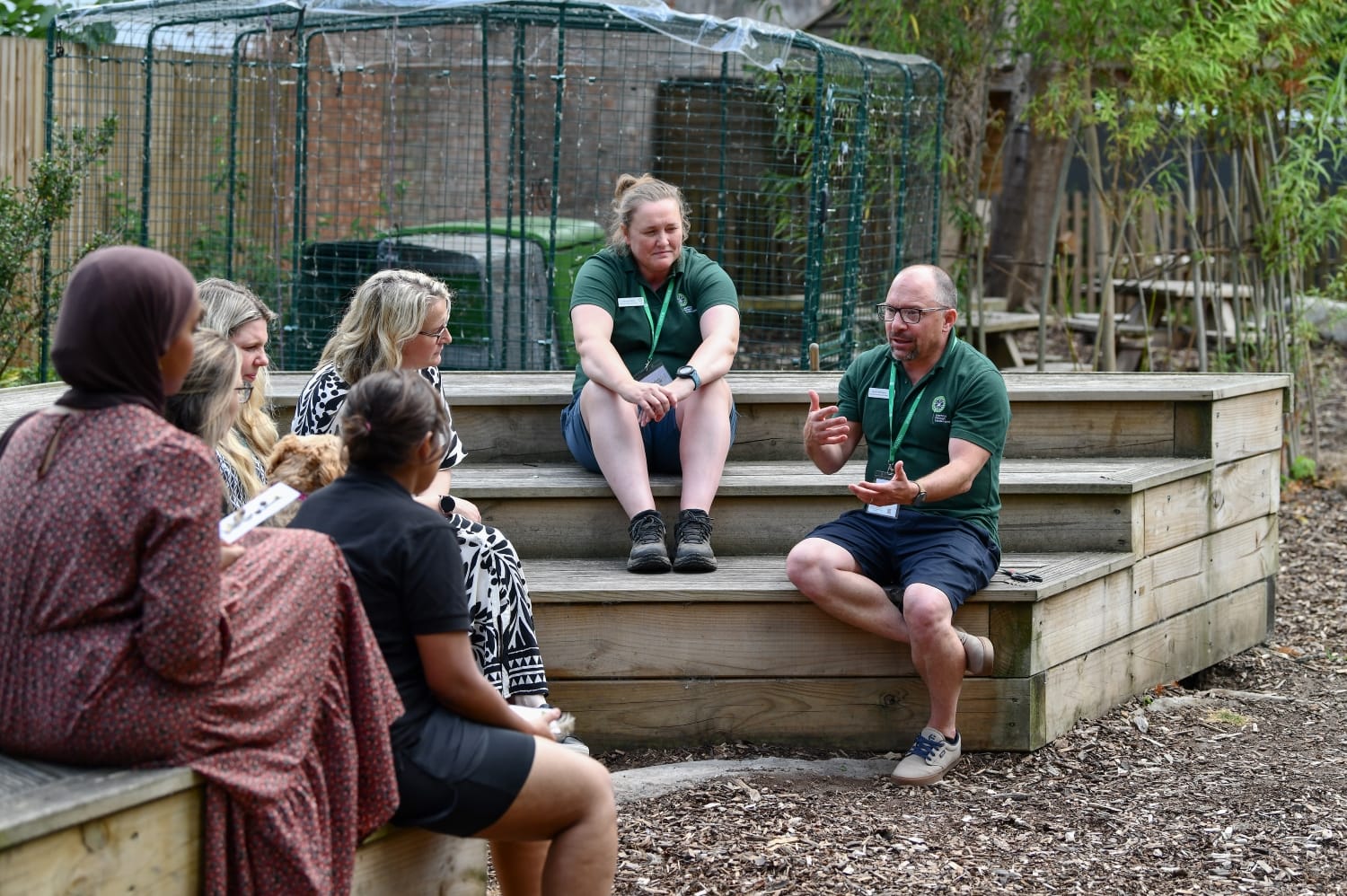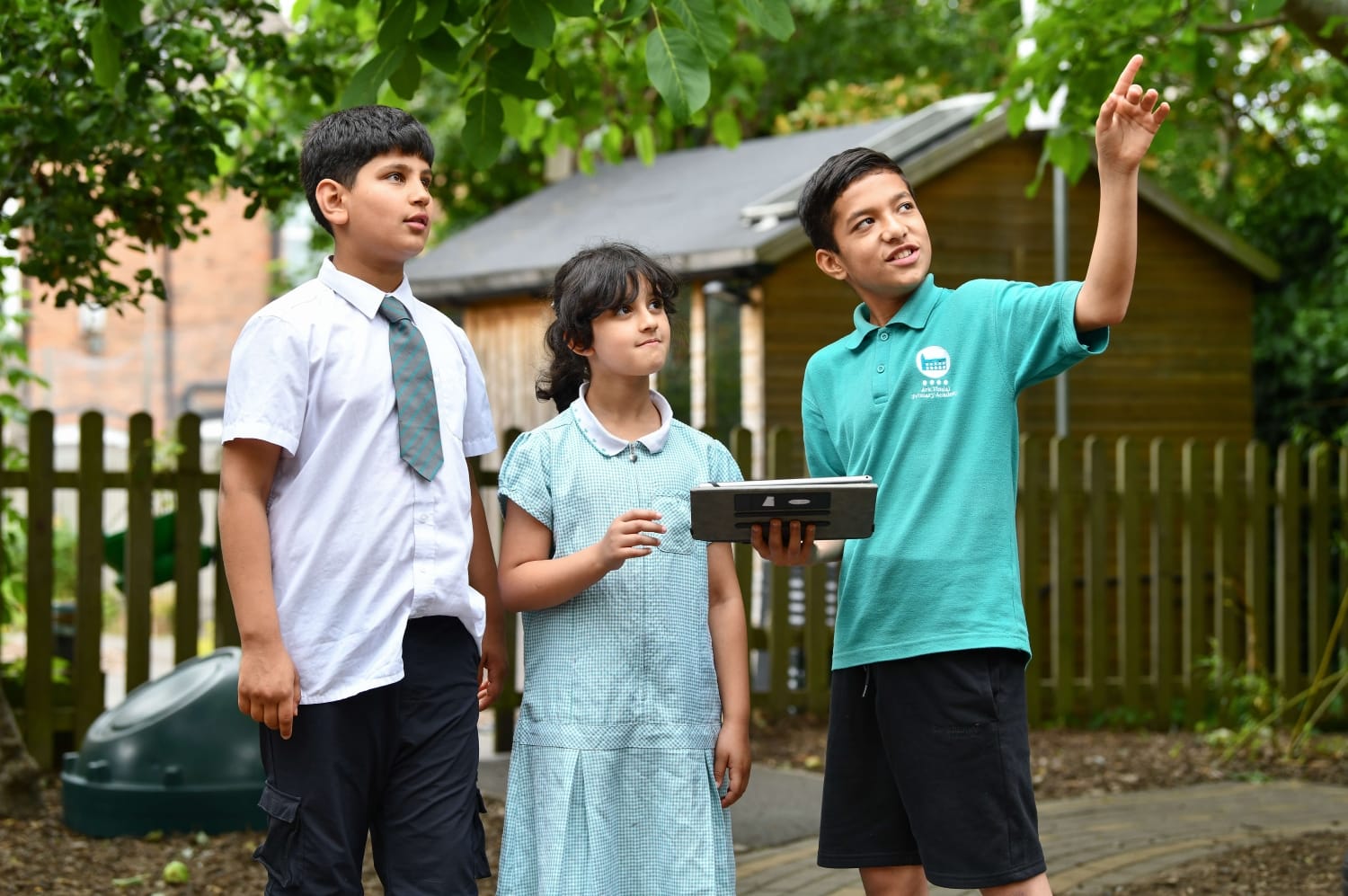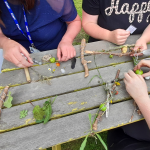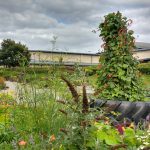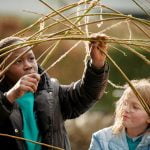Climate School 180: The story so far
Climate School 180 is an evidence-informed initiative to embed meaningful climate change education and outdoor learning across the curriculum. Project Manager, Holly Willmott, reflects on the impacts of the project so far…
Learning through Landscapes (LtL) has been working across the United Kingdom with an increasing focus on climate impact within school grounds. While this may sound daunting, it represents a fantastic opportunity for educators to transform outdoor learning and play, and to embed meaningful climate change education in the curriculum.
Climate School 180 (CS180), was launched in 2023 as an evidence-informed, climate-focused initiative, working in partnership with University of Stirling. Fostering ‘constructive hope’ for educators and pupils alike has been a key objective for the project, achieved by working with schools to identify the impact of climate change on their school grounds and consider nature-based solutions to tackle climate change challenges. Two years after the project was launched, CS180 Project Manager, Holly Willmott, reflects on the impacts so far.
Our learning journey
When I started managing this project, we perhaps underestimated the learning journey ahead. We needed our staff team to confidently support schools across the UK. Drawing upon expertise from the Faculty of Social Sciences at University of Stirling, expert panel groups, and LtL’s background in developing professional training, we created several online training courses. These would support knowledge building within our delivery team while also forming part of the initial eLearning for educators participating in schools.
Through this period of delivery team training and working with the initial pilot schools, we have refined our delivery framework. We then developed a comprehensive yet concise climate change education training programme suitable for educators across the UK, from primary to secondary. The aim was to provide rich, evidence-informed content that explored the depths of the climate crisis through the lens of climate change education and outdoor learning within schools.
Engaging with schools
Following our initial staff training and pathfinder phase, we have now recruited over 150 schools to participate. Applications closed last month, and we are on track to complete delivery by April 2026. The geographic spread has been remarkable — from the Scottish Outer Hebrides to Kent, with CS180 also taking place in Northern Ireland and Wales.
Every school is different, in terms of where they are on their climate change education journey and every location experiences different climate impacts — from extreme storms and coastal erosion in the Hebrides, to intense heat islands forming in urban settings in Birmingham. These varied challenges facing local communities reinforced our belief that climate solutions must be locally relevant, learned about and pupil-led.
We knew from the start that we were asking for significant commitment from schools. A group of key staff complete our online learning modules, help us conduct a comprehensive climate impact survey of their grounds, then participate in a half-day workshop with our team. We follow up with detailed findings and resources, then reconnect several months later to track progress and offer ongoing support through our developing resource hub.
Early impact
A fundamental outcome of the project is supporting teachers develop better climate change education, with many saying they will engage the children more in the planning and implementation of site changes that will support the environment and pupil wellbeing. Our previous work has shown that pupils embrace agency when given the opportunity. Rather than feeling overwhelmed by climate change, they become problem-solvers and innovators in their own school grounds.
One teacher at a West Midlands school shared that, “(CS180) has provided useful ways of addressing climate anxiety. Giving pupils ownership of making their environment more climate friendly.” Meanwhile, a head teacher from Perthshire commented that, “The children are now more aware of issues and gives them roles and responsibilities to make it more real for their environment and relevant to their lives. We will include climate learning into more areas of the curriculum. Children will be more aware of changes and how they can make a positive impact.”
Transformation
What I think Climate School 180 is achieving is hard to measure at this point. Our interventions are fairly brief, and systemic change takes time. However, I do believe we are catalysing deeper and more transformative approaches to climate change education. By putting the pupils first, schools are acknowledging wellbeing and can make climate change relevant to them.
Staff and pupils can assess and make changes within school grounds that are nature-focused and support climate resilience, such as increasing biodiversity, improving water management, and providing more shelter and shaded areas. Within these changes, staff are working to address how key curriculum learning can take place, benefiting pupils through real-life learning.
I am really looking forward to the year ahead. Applications for the project are now closed, but we still have a lot of work to do as we continue to deliver this programme across the UK, share our resources, and conduct a project evaluation. Look out for some engaging webinars around climate change education and some short films on how to implement change with a curricular focus.
Learn more about Climate School 180
To find out more about the project, visit the Climate School 180 page or email climate180@ltl.org.uk. You can learn more about our work supporting the implementation of quality climate change education and the creation of climate ready school grounds by visiting our projects page. Alternatively, if you are a teacher looking to take lessons about climate change outdoors, we offer a range of free outdoor lesson ideas, many of which relate to climate change.
For all the latest news and opportunities related to outdoor learning and play, sign up to our newsletter or follow us on Bluesky, Facebook, and Instagram.


